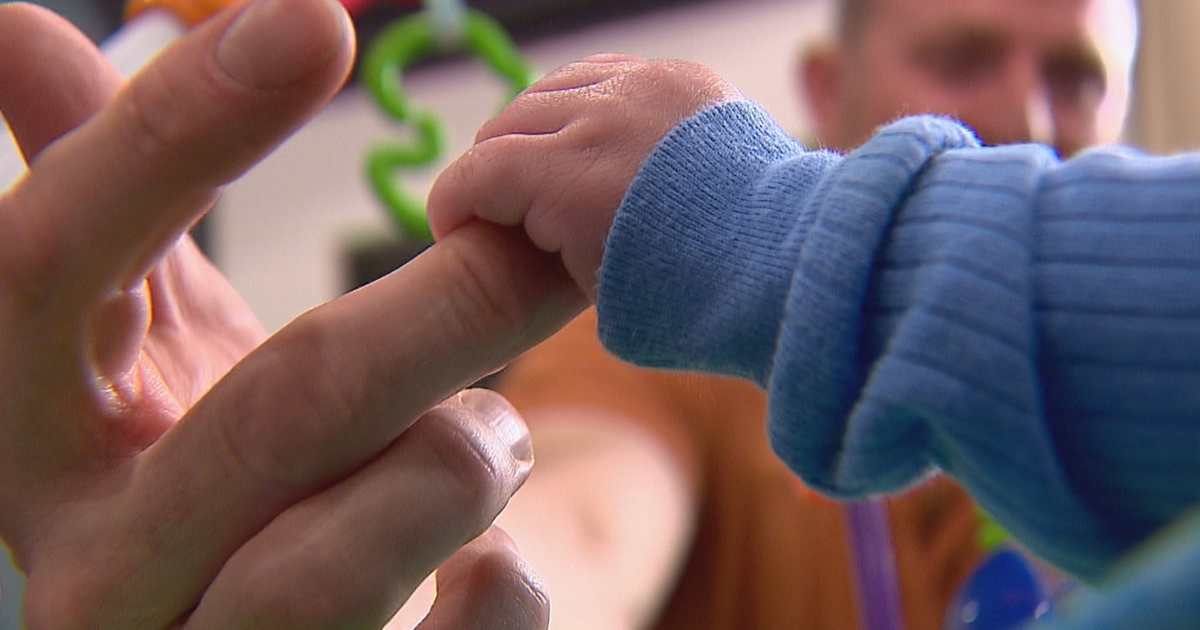What Causes Runner's High?
DENVER (CBS4) - Kira Musgrove says it was like, "A burst of energy, you could run forever."
She got that extra push from a runner's high. A feeling of floating as some have described it.
"And I don't always get it and this time I got it so it was exciting."
She was like a lot of the tens of thousands of runners at Monday's Bolder Boulder.
"You feel good about yourself," said one man. "This sport, every other sport is punishment, it's a nice thing."
True and not true says The University of Colorado School of Medicine's chief of sports medicine Eric McCarty.
"You can get it with almost anything and that's why sometimes you see an athlete that hurts himself and they keep going because they don't feel it," says McCarty.
It comes from sustained exercise and it varies a great deal.
"Their runner's high may be at a different level than somebody else's," says McCarty. "And it may depend on their condition and their activity level and what they do and the environment tends to have a play in that too."
He sticks with the theory about the importance of endorphins.
"And the body seems to have the receptors in the brain that tend to accept these. And it's just like opium or an opiate and that's why the endorphin or the endorphin name for it comes about because the body produces their own kind of morphine substance."
Which can seem to deaden pain and produce feelings of euphoria.
"And that's probably the best word to use is euphoria. That's what you feel after this time period where it goes it almost then becomes a disconnect between the mind and body where you don't feel your body. You may be in 20 or 30 miles of a run and it's almost like floating."
Researchers at Vanderbilt University have found exercise increases serotonin levels. But some have discovered what they believe is an indication that it's not an endorphin.
Endorphin is a large molecule and some researchers are now saying that it cannot get through the brain's filter - the blood-brain barrier. Over the past few years, some experts have focused on phenylethylamine. It seems able to cross the barrier.
"It may also produce an increase in different levels in your body's makeup serotonin and different things that may help increase this feeling of a high like feeling," says McCarty.
And then there's a report published on the National Institutes of Health's Web site. A researcher now in Europe found increased levels of endocannabinoids. Those are substances that attach to the same brain receptors as THC, the active ingredient in marijuana. But marijuana is a false way of producing the effect that might be produced naturally say researchers.
Finally, there's the issue of the simple psychological effects of running and other vigorous, sustained exercise.
Vanderbilt researchers considering the effects on people with depression list three hypotheses.
The mastery hypothesis includes, "The mere fact that they are exercising makes patients (with depression) feel like they have achieved something.
The distraction hypothesis means people, "Take their minds off of whatever external causes might be triggering their depression."
And the social interaction hypothesis points out that exercise is often done with others and, "Elation comes from being socially connected."
At the Bolder Boulder, it's hard to ignore that possibility.
"We understand a lot, but there's a lot we don't understand," says McCarty.
Surround yourself with more than 54,000 people going in the same direction for the same goal and you will find yourself connected and maybe with a runner's high.
-- Written by Alan Gionet



